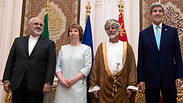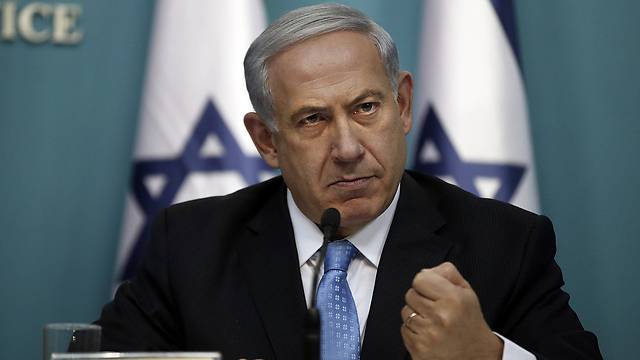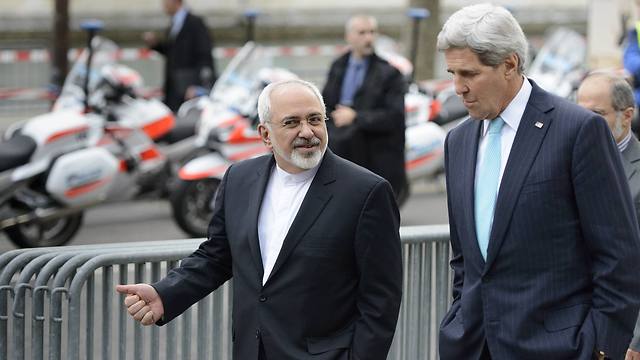
PM slams ongoing Iran nuclear talks after damning IAEA report
UN report says Tehran was continuing to withhold full cooperation regarding allegations of explosives tests and other activity that could be used to develop nuclear bombs.
Prime Minister Benjamin Netanyahu said Sunday he found it "astonishing" that Iran nuclear negotiations were continuing even after the International Atomic Energy Agency (IAEA) found that Tehran was hiding military components of its atom program.
A confidential document by the IAEA, distributed among its member states on Thursday and obtained by Reuters, said Tehran was continuing to withhold full cooperation in two areas of a long-running IAEA investigation that it had committed to giving by August last year.
"Iran has not provided any explanations that enable the agency to clarify the outstanding practical measures," the IAEA said, referring to allegations of explosives tests and other activity that could be used to develop nuclear bombs.
"Not only are they continuing (the talks), there is an increased effort to reach a nuclear agreement in the coming days and weeks," Netanyahu said.
"Therefore, the coming month is critical for the nuclear talks between Iran and the major powers because a framework agreement is liable to be signed that will allow Iran to develop the nuclear capabilities that threaten our existence," he added.
Netanyahu reiterated that the deal being formulated between Iran and world powers was "dangerous" for Israel. "Therefore I will go to the US next week in order to explain to the American Congress, which could influence the fate of the agreement, why this agreement is dangerous for Israel, the region and the entire world," he said.
In Geneva, US Secretary of State John Kerry and his Iranian counterpart Mohammad Javad Zarif will try to narrow gaps in another round of nuclear talks on Sunday as they press to meet a March 31 deadline for a political framework agreement.
The talks will be joined for the first time by US Secretary of Energy Ernest Moniz, who agreed to attend after Iran's nuclear chief Ali Akbar Salehi said he would take part.
A close aide and the brother of Iranian President Hassan Rouhani, Hossein Fereydoon, will also be part of the meetings, Iranian media reported.
Kerry was due to arrive in Geneva in the early afternoon, then immediately meet with the US delegation, which has been in Geneva since Friday. After that he planned to meet Zarif and the Iranian delegation.
The Secretary of State said on Saturday the presence of Moniz reflected the highly technical nature of the current talks and in no way meant "that something is about to be decided."
However, Kerry said the sides were working with urgency to meet the March 31 target for a political agreement, which would give impetus for further talks.
"There is still a distance to travel," Kerry said in London where he met British Foreign Secretary Philip Hammond.
The negotiations between Iran and "P5+1" powers - the United States, Britain, France, Germany, Russia and China - have reached a sensitive stage with gaps remaining, mainly over Iranian uranium enrichment and the pace of removing sanctions.
Kerry said US President Barack Obama was not inclined to extend the talks again. The parties already missed a November 2014 target date.
Obama believed it was "imperative to be able to come to a fundamental political outline and agreement within the time space that we have left," Kerry said.
"If that can't be done, it would be an indication that fundamental choices are not being made that are essential to doing that," Kerry added, also emphasizing that Obama was prepared to halt the talks if he thought they were not being productive.
The recent UN report also said that Iran had refrained from expanding tests of more efficient models of a machine used to refine uranium under a nuclear agreement with the six world powers. Development of advanced centrifuges is feared to lead to material potentially suitable for manufacture of nuclear bombs.












